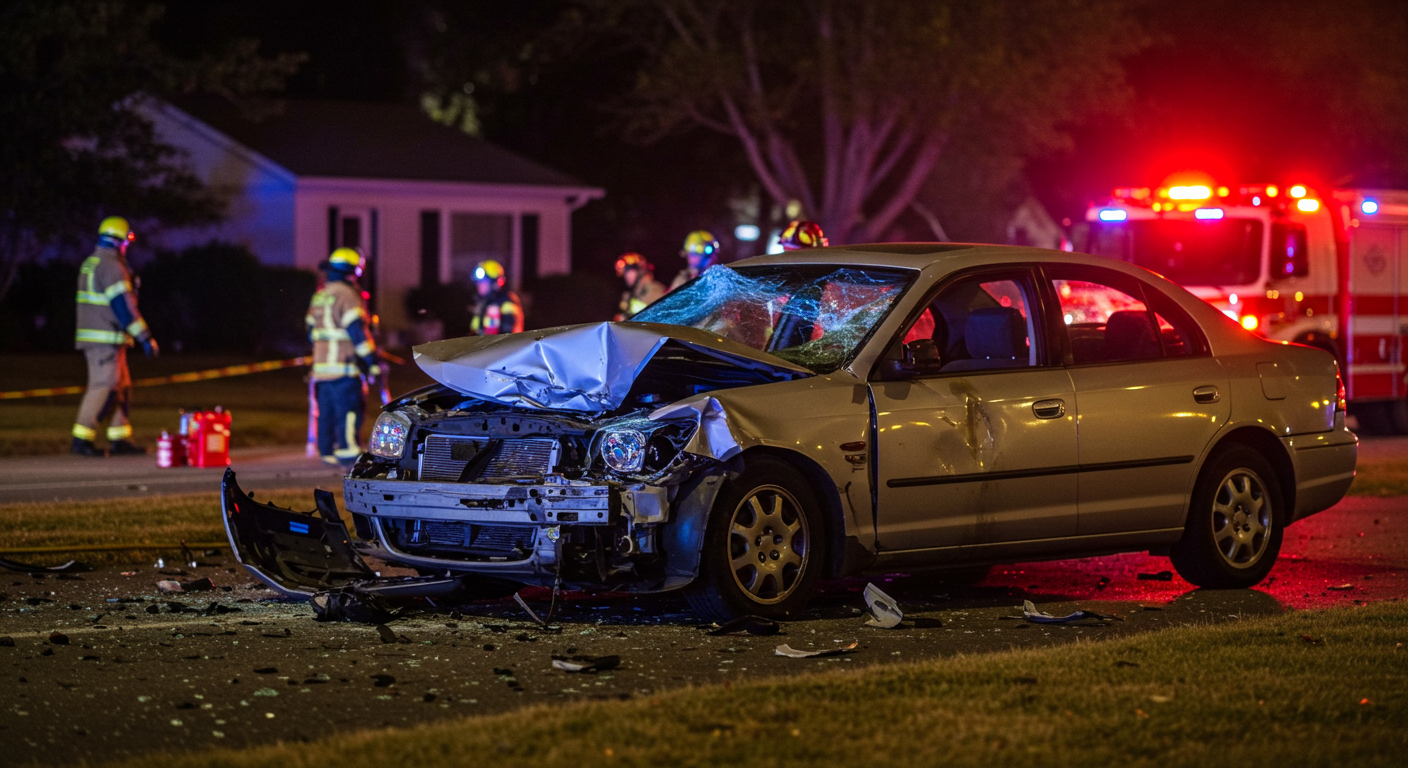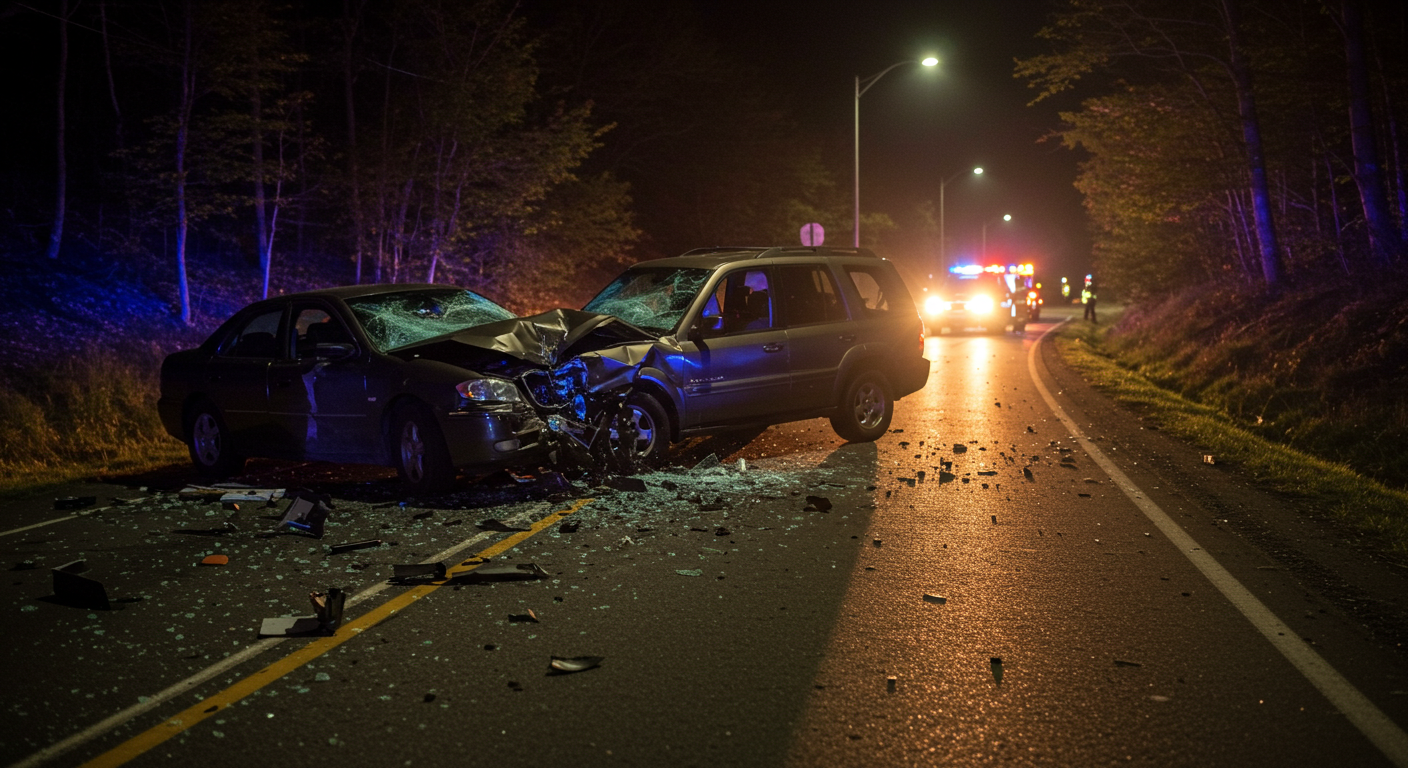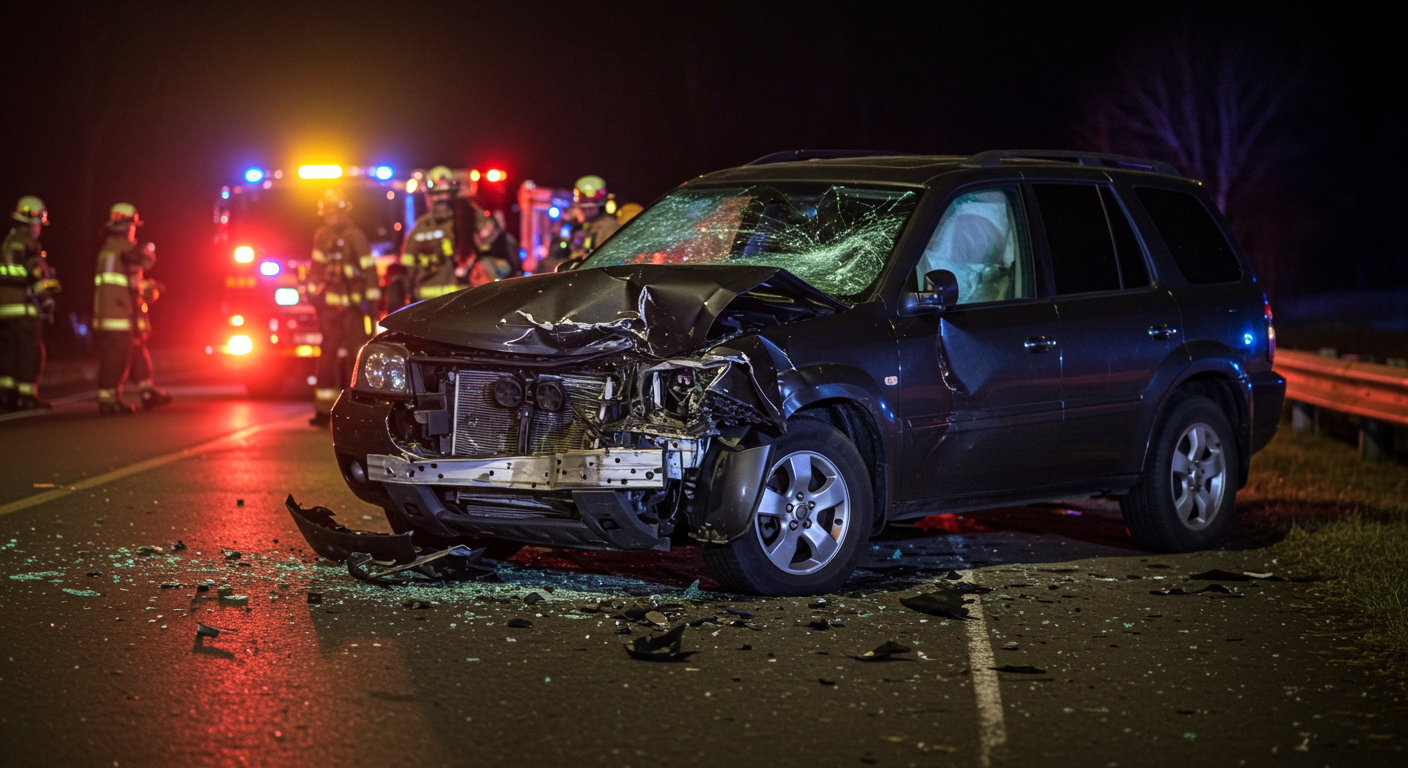Facing a DUI charge can feel overwhelming, especially when you don’t know what to expect next.
The Washington State DUI process involves several legal steps that can have a lasting impact on your life, from the initial traffic stop to potential sentencing after a DUI conviction. Understanding each stage is crucial to protecting your rights, making informed decisions, and avoiding costly mistakes.
Whether it’s your first offense or you’ve been through it before, knowing what lies ahead can ease your stress and help you plan your defense. At Russell & Hill – Injury & Accident Attorneys, we provide compassionate, strategic support for clients facing DUI charges.
In this blog, you will learn:
- What happens during a DUI stop and arrest
- How court proceedings and license issues unfold
- When legal guidance can make the biggest difference
Let’s walk through each step of the process together so you’re not navigating it alone.
Step-by-Step Breakdown of the Washington State DUI Process
The DUI process in the state of Washington has many steps after a traffic stop. You will undergo field sobriety tests and set a court date.
Each of these steps is important, as they all help decide what will happen in your case. To really understand the Washington State DUI process, you need to know both the steps of license suspension and the steps of the court process for a criminal charge.
This guide will discuss every important stage in the DUI process. It will start with the first traffic stop, show you what happens next, and then proceed to what happens after your court date and any possible sentencing.
1. The Initial Traffic Stop and Officer Assessment
The DUI process starts when a police officer stops you in traffic.
If they see things like you going too fast, swerving, or making another mistake, they might pull you over. When this happens, the arresting officer watches for signs that you could be drunk. They notice things like slurred words or if they can smell alcohol. These first signs often make them check things more.
The officer’s look at you does not stop here. They will check with direct eye contact, see how you react, and watch your behavior. If you show any clear problems, this can turn into a full DUI case. It is good to stay calm for this part.
If the officer thinks there is enough proof that you are not okay to drive, law enforcement officers may ask you to take some field tests or breathe into a test machine. It can be good to work along with these, but remember you still have rights in any DUI process.
What happens in the first stop sets up what comes next in your DUI case.
2. Field Sobriety and Breathalyzer Testing
After the traffic stop, the officer may ask you to do some field sobriety tests. These quick checks are meant to determine how well you can follow simple steps and pay attention.
The common field sobriety tests that could be used are the one where you stand on one leg, the walk-and-turn, or when you need to follow something with your eyes. If there is any sign that you are impaired, it will go against you in the DUI case.
After you finish the field sobriety tests, the officer may want you to take a breath test. This is a small device used to check your blood alcohol content. If the officer’s notes or the breath test show alcohol use, you will likely have to do more tests. These may happen at the police station or at the hospital.
Blood tests can also be used to see how much alcohol or drugs are in your body. You need to know that this information is a big part of the case against you. These field sobriety tests and breath tests help the officers know if you will get arrested or not.
3. Arrest and Booking Procedures
If an officer thinks there is enough reason to say you drove under the influence, you will be arrested. At this point, your rights will be read to you before further questioning. A DUI arrest is the beginning of a legal process. This can lead to criminal charges and may bring other penalties.
After you are taken to a city or county jail, the booking process starts. This process uses common steps like taking your fingerprints and a mugshot. There will also be a search. During this time, you might be asked questions about your case. You need to know that you can stay quiet and not answer questions.
How quickly you get released depends on the place and how serious the charge is. You might get out within hours. Or, you may have to pay bail from your own expense. If you know these steps, you will find it easier to handle what comes next.
The future steps often include getting a citation and having to go to a court appearance later.
4. Release Conditions and Temporary License
Once you are released, there may be some things you need to do. These are set to ensure you follow the court’s rules before more proceedings happen.
In Washington State, some common conditions of release are:
- You must follow all laws and not be involved in any criminal activity.
- You must not drink alcohol or use drugs that are not prescribed to you.
- You may have to use an ignition interlock device or take part in electronic home monitoring.
After an arrest, you may only get a temporary license. This allows you to drive while you wait for your hearing with the Department of Licensing. If you do not act fast and fight your license suspension, you could face strict limits on your ability to drive.
Remember that the conditions of release and the administrative steps to keep your license are handled separately from your criminal case. You must take care of these things to avoid more trouble, including problems with license suspension or getting your driver’s license back.
5. Arraignment and First Court Appearance
The arraignment is your first appearance in court. This happens soon after your DUI arrest, but the exact time depends on where you are. The court looks at your case, talks about your charges, and makes sure you know your legal rights. At this point, you need to say if you will plead guilty, not guilty, or no contest.
If you do not have a lawyer, some courts will give you a public defender at this stage. It is a good idea to plead not guilty at first while your actions and all the evidence are checked. Our best DUI attorney can help you prepare and defend well.
At the arraignment, the court also talks about the conditions of release, including restrictions on alcohol consumption. The judge may decide you need to pay bail, use an alcohol monitor, or face limits on your driving, depending on how serious your DUI arrest is.
How you act and what you say at this first court appearance matters a lot for what will happen next in your case.
6. Pretrial Motions and Hearings
Pretrial hearings are a key part of the court process. These hearings allow defense attorneys to question the DUI case and bring up legal arguments.
At this time, our attorney may discuss whether arrest procedures were followed, how evidence was collected, or if there was any officer misconduct, providing sufficient time for the defense to make compelling arguments. What they say in these arguments can have a big effect on the final result of the DUI case.
An evidentiary hearing may also happen during this stage. In this hearing, the arresting officer will talk about what happened. Your attorney gets to ask questions to the officer and other people involved. This process helps determine if the evidence is strong enough to continue the trial.
Sometimes, higher court decisions about these pretrial motions can influence how people make plea deals, set limits on evidence, or even get cases dropped. That is why pretrial hearings are such an important time.
What happens during these hearings can set the stage for the best possible legal result for you.
7. Plea Bargaining or Case Negotiation
Legal negotiations often play a big part in Washington DUI cases.
Our DUI attorney will review the evidence and help you decide whether to negotiate a plea deal. Our main goal is to lower your penalties and achieve the best possible outcome for you.
Talking about the case with others can sometimes lead to different sentencing or less serious DUI charges. For example, you may get a plea deal that lets you join a deferred prosecution program or get DUI penalties that are less than normal. Your DUI attorney speaks with the prosecutors, using legal arguments and looking for a possible agreement.
If talking with the other side does not work, the focus moves to what will happen in court. The attorney studies every part of the case to prepare your defense or tries to change how things will turn out. The chance to negotiate gives people a good way to lower the impact of DUI charges.
8. Trial and Presentation of Evidence
If negotiations stall, you may face a DUI trial. Trials can proceed with a judge (bench trial) or a jury trial (six jurors). Evidence is critical:
| Evidence Type | Description |
| Blood Test Results | BAC measurements are sometimes contested for accuracy. |
| Arresting Officer Testimony | Details regarding the arrest and any impairments observed. |
| Witness Testimony | Eyewitness accounts related to the arrest incidents. |
Cross-examination allows your attorney to challenge this evidence. Strengthening defense positions may result in case dismissals or reduced penalties.
Trials aim for fair outcomes. However, preparedness is vital for success in dismissal or reduced-impact sentencing through informed advocacy.
9. Sentencing and Penalties
If you get convicted or agree to new charges, sentencing will decide your punishment. Some common penalties are using an ignition-interlock, spending time in a local jail, or being monitored in the community. Sometimes, you must meet certain rules about the ignition interlock while out in the community.
Final Thoughts
Talking about the case with others can sometimes lead to different sentencing or less serious DUI charges.
For example, you may get a plea deal that lets you join a deferred prosecution program or get DUI penalties that are less than normal. Your DUI attorney speaks with the prosecutors, using legal arguments and looking for a possible agreement.
At Russell & Hill – Injury & Accident Attorneys, we know how high the stakes are in DUI cases. Our team is here to guide you through every step with clarity, professionalism, and care. Whether you’re seeking to challenge evidence, explore plea options, or reduce penalties, we’re committed to helping you achieve the best possible outcome.
Call us today at (800) 529-0842 or fill out our online form to get a free initial consultation and take the first step toward defending your future.
Frequently Asked Questions
How long does a DUI process take in Washington State?
The DUI process in Washington State often takes about 6 to 12 months, with criminal charges typically filed within a few weeks of the arrest. The exact timeline can vary based on court schedules, how complex your case is, and how quickly your defense moves forward. Since every DUI case is different, your timeline may not match someone else’s.
Can I refuse a breathalyzer test in Washington?
In Washington, you can refuse a breathalyzer test, but doing so can lead to serious consequences under the state’s implied consent law. A refusal may result in an automatic license suspension for at least one year, and it may also be used against you in court. These penalties are outlined in the Revised Code of Washington – RCW 46.20.308.
Will I lose my license immediately after a DUI arrest?
Yes, after a DUI arrest in Washington, your license may be suspended through an administrative action by the Department of Licensing (DOL). The suspension typically starts 30 days after your arrest, unless you request a hearing to challenge it. The outcome can depend on your driving history and whether you refused testing.
Are there alternatives to jail time for first-time offenders?
Yes, first-time DUI offenders in Washington may qualify for alternatives to jail, such as electronic home monitoring (EHM), probation, alcohol or drug treatment programs, or community service. Judges often consider these options to promote rehabilitation while still ensuring accountability. These programs vary by county, but are permitted under the Washington Sentencing Guidelines.
What options do I have for challenging a DUI charge in Washington State?
You can challenge a DUI charge in Washington through several strategies: requesting an administrative hearing with the DOL, filing motions to suppress unlawful evidence, negotiating a plea agreement, or taking the case to trial. An experienced DUI defense attorney can assess your situation and develop a defense based on issues like improper stop, faulty testing, or procedural errors.




